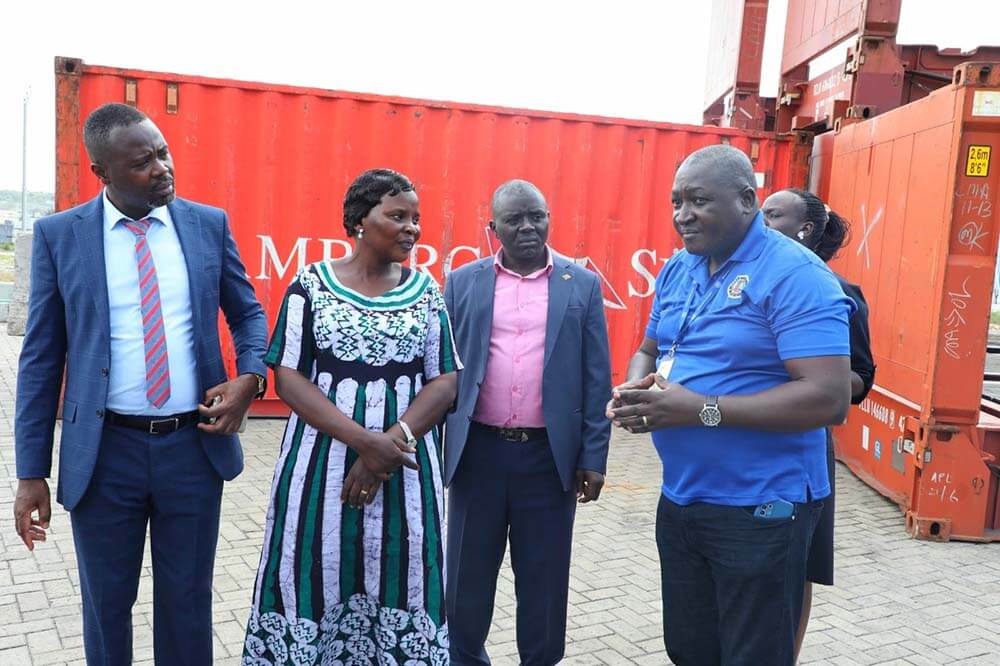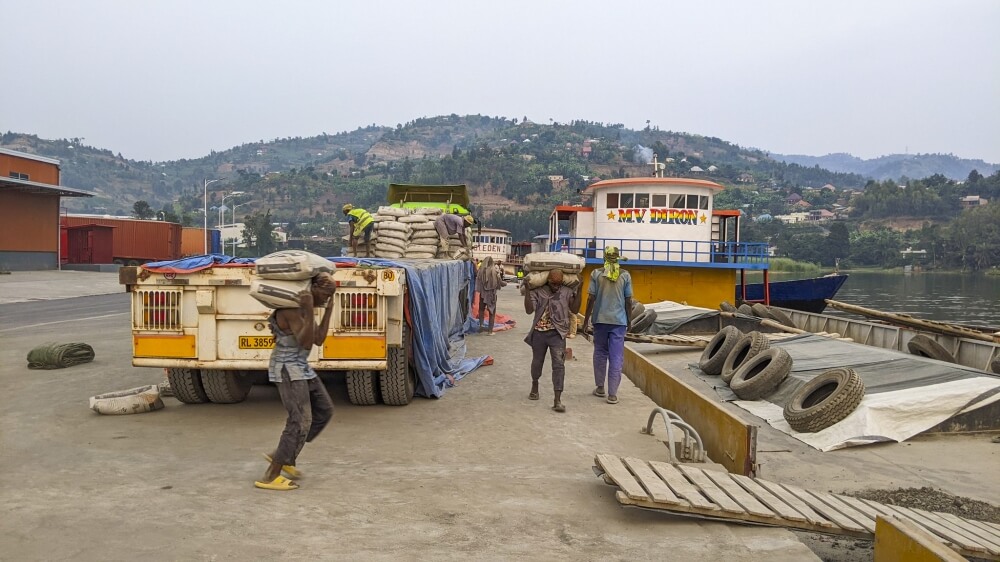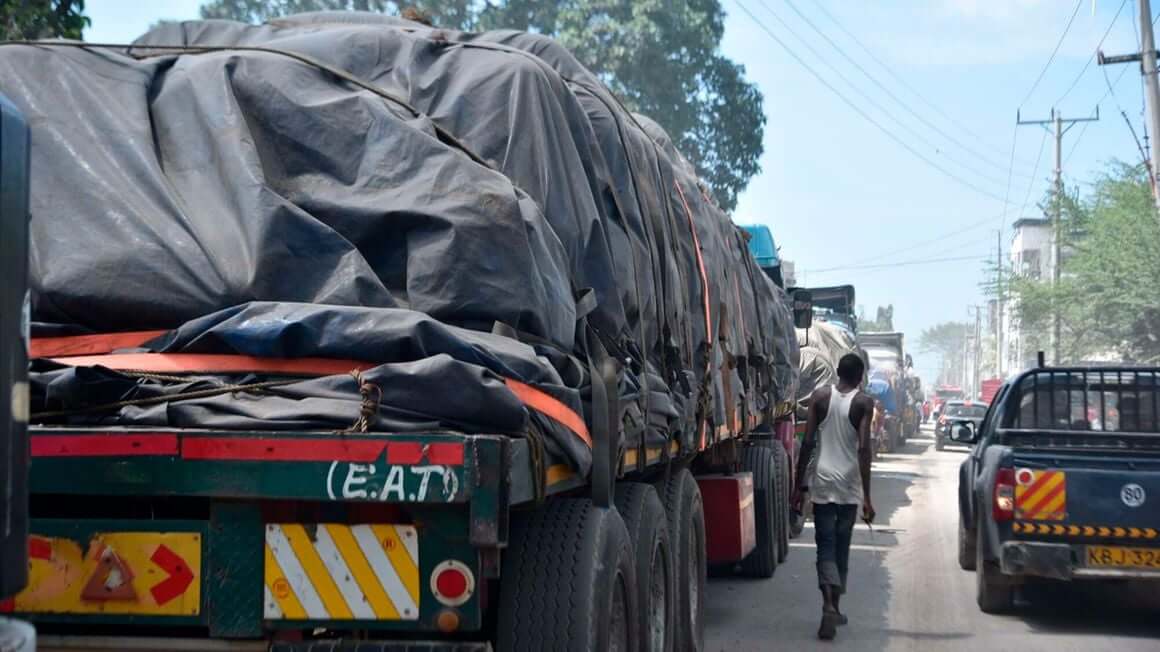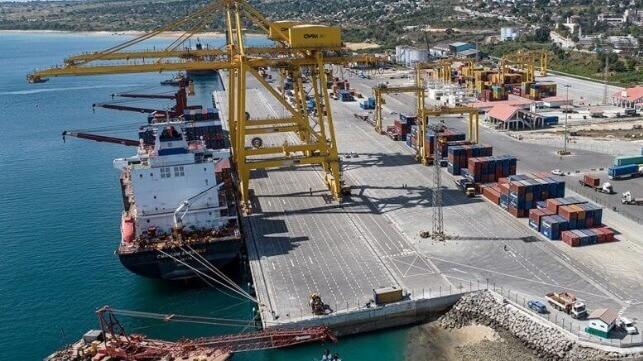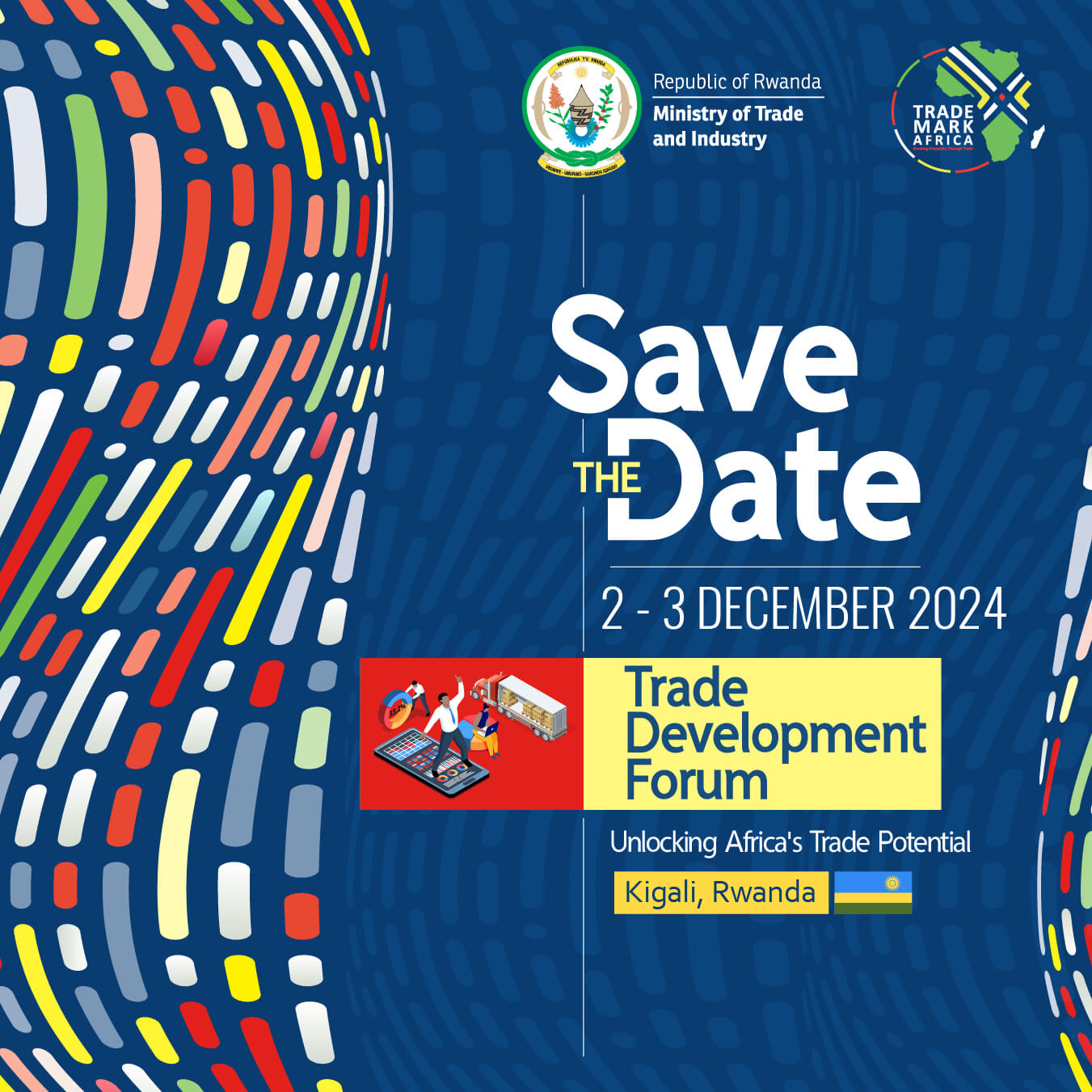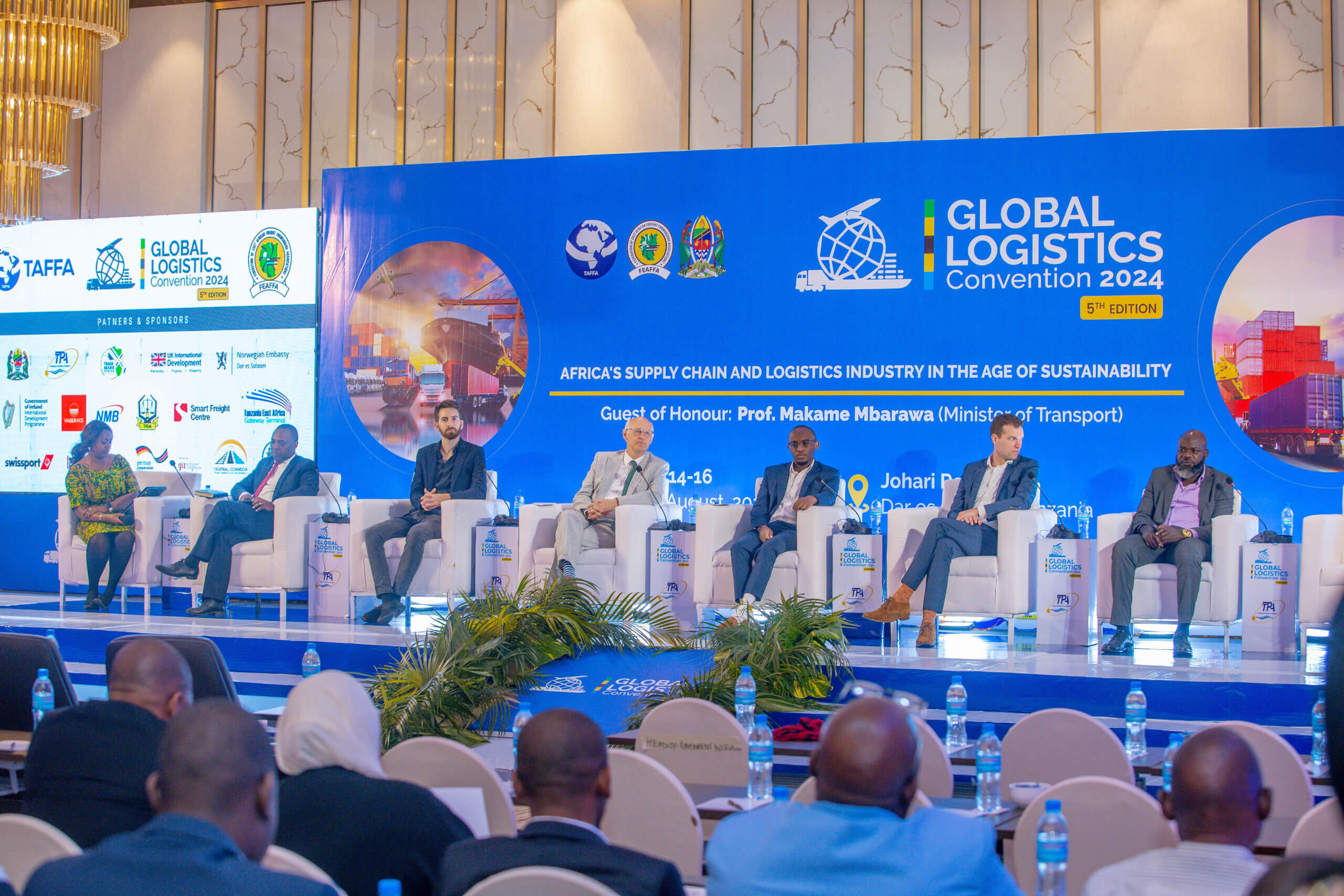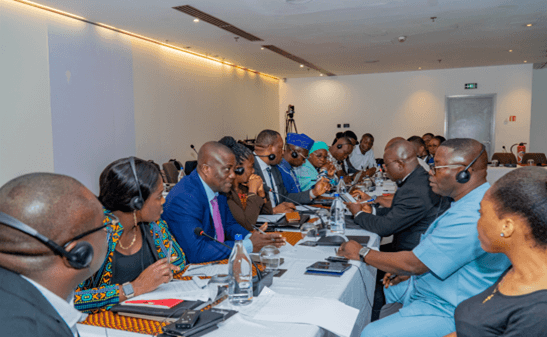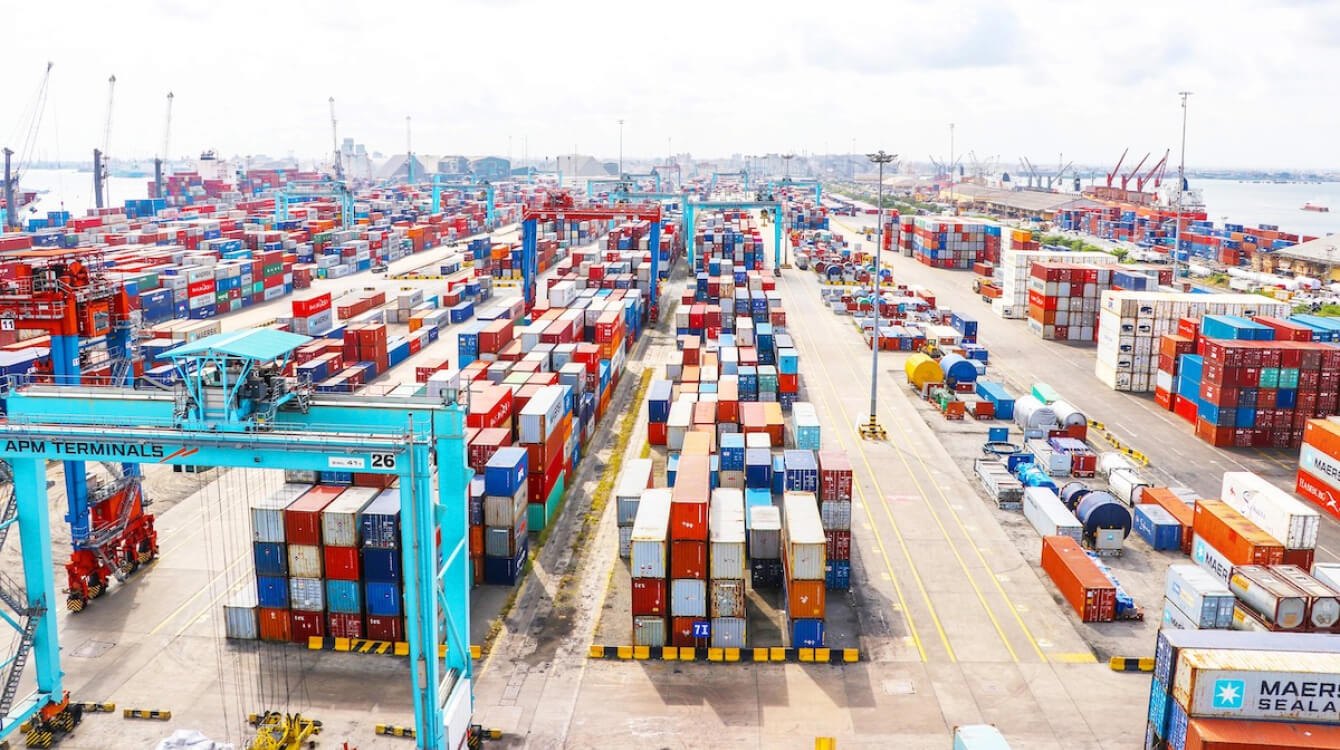Minister of state in charge of Economic Monitoring in the Office of the President Beatrice Akello Akori has commended the operationalization of the Nairobi and Naivasha Inland Container Depots (ICDs), which she said will boost transit trade along the Northern corridor. The Northern Corridor road network covers approximately 12.707 kilometers in length, distributed as follows; 567 in Burundi, 4162km DRC, 1328.6kmKenya, 1,039.4km in Rwanda, 3,543km, in South Sudan and Uganda 2,072km. Akello made the remarks on Friday while leading a delegation that was assessing the multi-modal transport infrastructure along the Northern Corridor. The aim of the tour was to understand challenges in the route so as to discuss ways of improving regional trade and transport efficiency. Minister of state in charge of Economic Monitoring in the Office of the President Beatrice Akello Akori (L) has commended the operationalization of the Nairobi and Naivasha Inland Container Depots (ICDs), which she said will boost transit trade along the Northern corridor. (Courtesy Photo) She also commended the seamless clearing processes at both the ICDS which she said allows trades to pay less in demurrage charges, hence increasing Uganda’s exports and import volumes. During the same mission, Akello held discussions with officials from the Uganda Revenue Authority (URA), Kenya Revenue Authority (KRA), and Kenya Railways stationed at the facilities. In order to ease trade along the corridor, Kenya Ports Authority (KPA) has put in place incentives targeting transit customers utilizing the two depots, which they say has made them competitive in the region. According...
Naivasha, Nairobi Inland Container Depots to increase Uganda’s trade volumes
Posted on: August 30, 2024
Posted on: August 30, 2024

